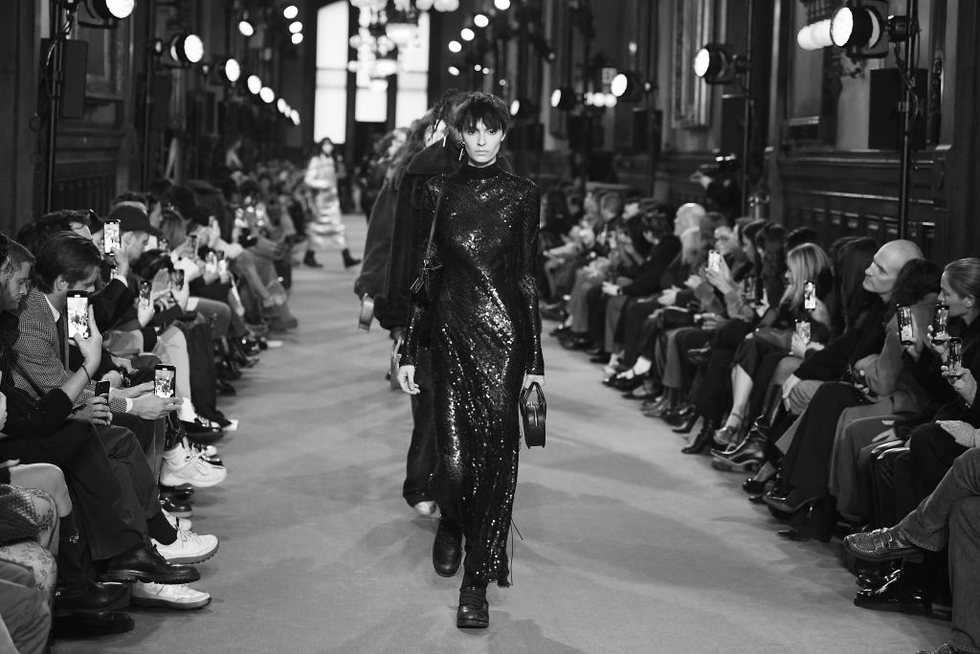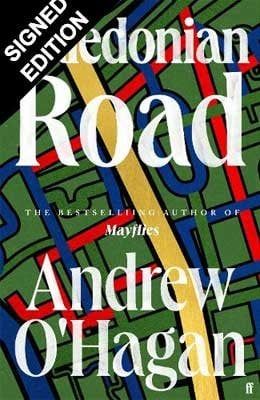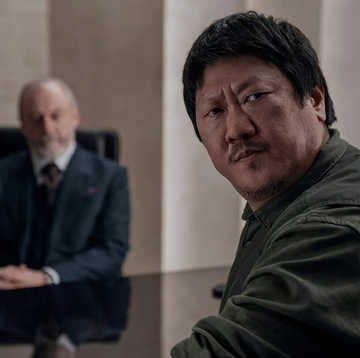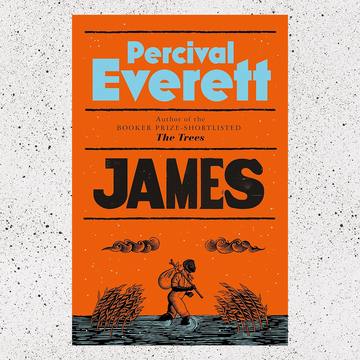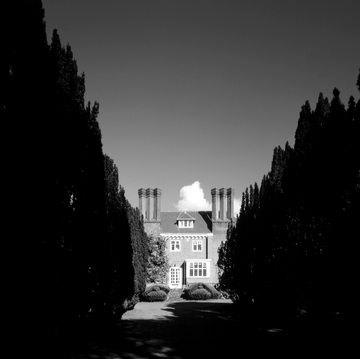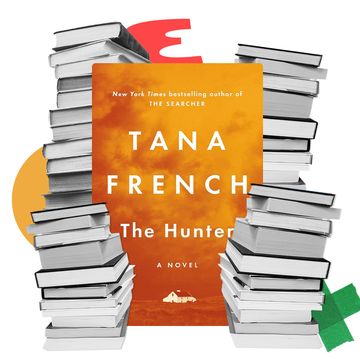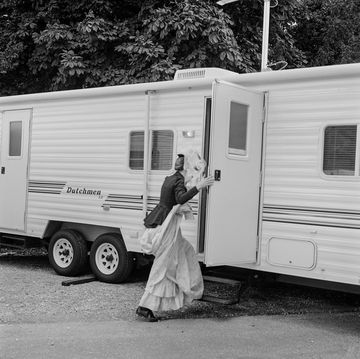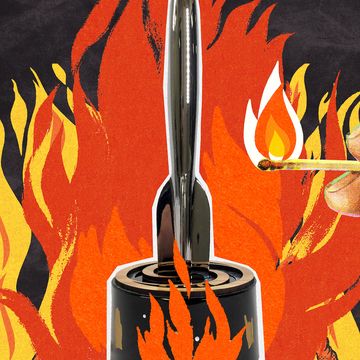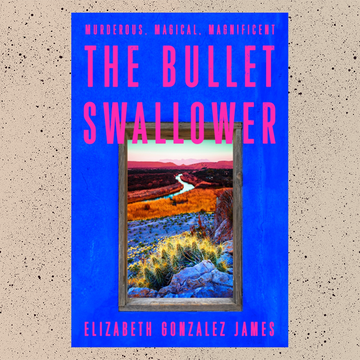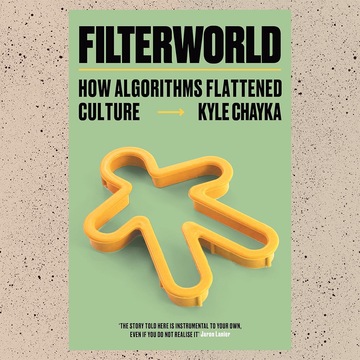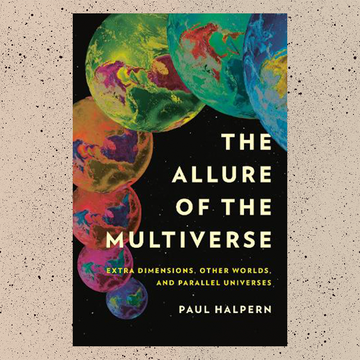The story so far: London in the spring of 2021. Celebrity art historian and well-connected man about town Campbell Flynn has a lucrative side hustle as courtier-consultant to famous fashion designer Izzy Pick — which in no way detracts from his status as class-conscious standard bearer for liberal values. Well, that’s what he thinks…
Calls with Angus were frenetic. He was always away. Campbell felt the volume of his success, but in every other respect he experienced his son as a not very momentous absence. He would be in a limousine in Florida or a godforsaken helicopter over Shanghai or São Paolo. At 100 miles an hour, he would be buzzing about some club or an ‘awesome’ gig, at Ushuaïa or Coachella. Drake was calling, or a movie person or a shit-hot producer in Belgium. ‘Call you back, Dad,’ he’d say. ‘Give me two minutes.’ It was always like that: speed, hassles, the rush of demand. The little boy from Belsize Park loving his life and wanting other people to love his life, too.
‘I need to speak to you about something,’ Campbell said, in an effort to take control today. ‘It’s to do with this birthday plan. Your sister rang me—’
‘You’re going to love it, Dad. She told you Paris won’t work—’
‘She did—’
‘The 6th is a ghost-town right now. I’d got rooms and the penthouse at L’Hôtel for 5 July. Bummer. New variant. I think Kenzie is secretly delighted. She always wanted you to have a garden party in the Cotswolds.’
‘That’ll suit me fine. I’m not into it, Angus. I know you all love an excuse to spaff money in this family and create a fourteen-act opera featuring unicorns and blood diamonds, but it’s not a significant birthday.’
‘No, Dad. I’m not having it. I’m in charge of this celebration, and you’ve been stuck in London long enough. I’ve got plan B.’
‘Which is?’
‘Iceland.’
‘Angus, I don’t think—’
‘It’s on the green list. It’s arranged.’
‘Honestly. I don’t want any fuss.’
‘You’ll be in the Hotel Borg in Reykjavík in five weeks’ time. It’s gonna be mega. There’s only one place in the world to eat curry right now – this Reykjavík place. Trust me.’
‘Have you spoken to—’
‘Everybody’s cool. They’ll all be vaccinated, tested, passports, whatevs.’
Campbell was irritated.
‘Do you ever sit quietly in the middle of nowhere and think of nothing?’
‘Like, yeah,’ Angus said. ‘I sleep at night.’
‘No, you don’t. You party.’
‘That’s true. Okay, man. I’ve told Mum all the plans, so you don’t have to do a thing. Sit back and I’ll get all the peeps up to speed, then away we go.’
Only a few more words, thought Campbell.
‘I’m grateful for all your exhausting efforts. I’ve got Venice tomorrow.’
‘Laters, Dad.’
He was gone into his miasma of stuff.
Campbell might hear nothing more for months; that was the reality of having Angus for a son. His existence was a matter of present ego and old family albums, where he was a sweet little boy, somebody waiting to happen.
Campbell’s Uber crossed Farringdon Road, spring sunshine flooding the car. In all the obvious ways, he was an unlikely follower of fashion. He was academic, middle-aged and suit-wearing, believing the well-chosen tie to be a signifier of composure, the knot holding him together. His suits were timeless and his shirts were handmade, and it suited his temperament, increasingly, to think of himself as a silhouette more than an embodied person. In any event, beginning in the 1990s, it had been a side hustle of his, the whiles and wherefores of British fashion, the psychic gymnastics of the young couturiers, Galliano, McQueen. In some way, he felt he had grown up with the story of their rise and falls, and secretly he felt a kinship with their romantic extravagances and their working-class backgrounds. And there was his mother, the Glasgow seamstress. There was a Holy Communion suit in 1975 with a red sash across the front. She had cried while working on it. She would always lick the thread to help it through the needle, and he remembered thinking that his brand-new suit was held together by his mother’s tears.
He got out across from Smithfield Market, by an elegant building in Charterhouse Street, next to the Fox & Anchor. This part of Clerkenwell, with its lanes and passages, was redolent of a bustling old London, and many of the shops still bore the shadow of their former names, fading from the brickwork. But it was all vintage everything now. Pints of avocado craft beer. When Monastic, the English fashion house headed by Izzy Pick, was making its move from Mayfair, there was agreement that the studio would find its true home among the old markets and the urchin pavements of Clerkenwell – a destination sought by other multinational fashion labels keen on talking about roots.
Campbell was met in the lobby by Liang, Izzy’s assistant. They passed clothes rails and boxes as they went up the stairs and even- tually arrived in an open space. At the far end, behind a white desk hemmed in by four large mood boards and a mannequin, was Izzy, talking to herself and biting her nails. ‘Oh, Campbell Flynn!’ she shouted. ‘You’re the kindest man.’
‘La belle dame sans merci,’ he said, kissing both cheeks. ‘Everything’s a disaster. We need your beautiful words.’
Vanity is the necessary occasion, the ne plus ultra of the form, and nothing in fashion lies outside vanity. Campbell had met Izzy and half fallen in love with her manner, one day in 2017, when he was asked by T Magazine in New York to profile Monastic for a special issue. The label was in trouble because its founder and presiding genius, a young Irishwoman named Nora Crowe, obsessed with stigmata, had tumbled into madness and was installed in the Bethlem Royal Hospital before being returned to County Clare. Izzy, her long-suffering assistant, had been asked by the French parent company to step in, and this was the state of play when Campbell had arrived that first time. Izzy had her thumb in her mouth and tears coursing down her cheeks, no doubt relating to the fact that she had to produce between six and eight collections a year. He wrote about her as an English genius, a woman side-lined for too long, a scissoring siren, a Boudicca of bias cuts, and such garbage made him, for a stretch, the fashion writer all the designers wanted. Suddenly, he was being offered all manner of commissions, from Karl Lagerfeld to Acid D, the new hip-hop fashion king. Campbell tended to use fine art metaphors and to compare the designers, and their splendid minds, to everybody from Giordano Bruno to Fantin-Latour.
‘Oh, darling,’ Izzy was saying, ‘I’m glad to see you. Only you. Like that Yazoo song, remixed by Tiësto.’
‘You’re far too kind, Izzy.’ He loved her theatricality. ‘Kenzie’s coming in,’ he said to her. ‘She wants to see you, and I’m taking her to supper later.’
‘Wonderful. Give me a hand, would you? I’ve run out of motivation intrinsèque and I need some help with the wording of this collection.’
‘The label’s doing well—’
Her pride suddenly awakened and she gently put him down. ‘I know that,’ she said. ‘You can imagine many things, Campbell, but you are not a businessman. Selling products is something I do as easily as breathing.’
‘I know my place,’ he said, a bit chastened. She smiled and touched his face.
‘We miss Kenzie walking for us. When she was a student in Paris, everything was brighter...’
‘We remember it well, Izzy. As Hugo said, “To study in Paris is to be born in Paris.”’
‘How wonderful. I must write it down.’ She rushed for a pencil and sighed a few times while making him say it again. Being head designer, Campbell believed, involves pressures no one would believe who hasn’t seen it up close. Most of them live on adrenalin and cigarettes, fearing they are nobody, and Izzy was perpetually at the point where creativity meets exhaustion, feeling emotional and hard-pressed.
‘So, Izzy. About this perfume—’
They discovered Campbell’s cigarette case was empty.
‘Liang! Please, Liang, I’m calling you. We are desperate for ciggies! Twenty Marlboro Lights, prestissimo!’
When Liang came back with the cigarettes, Izzy mainly gesticulated with them. She walked to the mood boards and began describing the concept of the next show. ‘This is a marriage of Shetland wool, of the “bothy” tradition, with fears of racial war,’ she said, waving her short black fingernails. ‘These are beautiful coats for the warrior-woman. She is fierce yet she is vulnerable. The Monastic woman is ready for change: she shows apocalyptic courage in a world crisis.’ She chewed one of her nails. ‘We need your words. Oh, please help me with this, Campbell. I can’t stand it.’
‘Is she cold?’ he asked.
‘Ah, Campbell. Always, with the perfect question. These clothes are for the woman who has known discomfort—’
‘The discomforts of conscience.’
‘Yes.’
‘But now she has found her skin.’
‘Brilliant! She steps into the northern landscape and is clothed for war, for revolution. It is her skin.’
‘Okay. I’ll send you a page.’
She calmed down and smoked again. ‘Do you think we could persuade Kenzie to walk for me in Paris? Next year will come so soon, the live shows.’
‘I think she’s stepped back from modelling.’
‘Because of Ashley-Jo? They’re going out, right?’
‘Em, well . . . A.J. is in every sense multiple. I think they’re going out with everybody.’
‘No, they’re a thing, right?’
‘A sort of a thing – off and on.’
Izzy didn’t like A.J. She had the mentor’s wariness of the protégé, and A.J. had built up quite a reputation in advance of their first collection. ‘Being difficult is one of their talents,’ Campbell said. ‘And they hate categories, including the category of being someone’s partner. So, they’re having a thing that is not really a thing but is more like a thing impersonating a thing.’
‘Got it,’ Izzy said.
‘You should ask Kenzie. It might do her good to work again.’
‘Paris. Maybe Milan.’
He smiled. ‘Remember that show we all did together at the Orangerie du Sénat? It was a beautiful moment.’
‘Our Pagan Britain series. Ah, yes. And you wrote that wonderful thing. It’s in your book, wait . . .’ She reached up and took down The Life of Vermeer. The page was marked with a hair slide. ‘Here,’ she said, and read it out. ‘“Every colour is changed by the colour next to it, a truth in painting as well as society. No life can exist by itself, even in the eyes of God.” I mean, is that not heaven?’
‘You’re too kind. That was a lovely show. Kenzie and all the girls in lace-up gladiator boots. And Anna Wintour came in with Baz Luhrmann, and he cared more about the clothes than Nuclear Wintour did.’
‘That’s right. I was so nervous. It was one of my first big shows without poor Nora. Oh, darling. It was hell. Sometimes you don’t know the hell you’ve been through until it’s over. I hope you never have to experience that.’
‘I was sitting next to Lee Radziwill. The big cone of hair. And afterwards I took her in the limo to that grubby boutique club, Le Perchoir. She insisted on smoking in the car and the driver was furious. Everyone came.’
‘It was the best.’
‘It’s where Kenzie met Ashley-Jo,’ Campbell said.
‘They had actually met once before, at the Harper’s Bazaar Women of the Year Awards at Claridge’s.’
Campbell remembered. Elizabeth was with him that night – snorting with laughter when the pregnant Model of the Year stood up to collect her award and thanked her unborn child. He’d been a bit intimidated by Ashley-Jo, the sometime lover, who had started off by telling Elizabeth they often dressed to express their feelings about the destruction of the planet.
Izzy was speaking about her new line of trainers. ‘Signature Monastic apparel and no mistake!’
‘For the Shetland collection?’
‘Yes. The common training shoe is all that stands between my woman and her toxic environment.’
Izzy smiled. She liked being ludicrous. Campbell should have hated it here – he wanted out of writing about fashion – but he couldn’t help enjoying her mad collision of style and eccentricity and money. It felt real to him, and that in turn felt shameful, when he thought of his mother and the way all of this seemed like a higher and more successful form of something that was very native to him and rather tragic.
At 5 p.m., Izzy chaired a meeting about the new fragrance. Two men were there from the partnering firm, Procter & Gamble, plus two parfumiers from Paris. Campbell hadn’t had a single thought about the perfume or what it should be called. Wait, there had been a moment, that morning in the National Gallery, when he’d looked at a painting of flowers and tried to imagine their smell. But he hadn’t quite got there yet. They were talking about ylang-ylang, herbs, tuberose and citrus. He gazed down the table as if his thoughts on the subject had been real and ground-breaking. Izzy kept shushing the others to hear what he had to say. ‘Did you say “she” was urban?’ he asked.
‘She is an urban wanderer. Instinctive. But mysterious,’ Izzy said.
‘Perhaps un petit peu. . . religious,’ a Parisian said. ‘I mean, ah, she has conviction and she is, how would you say – spirituelle.’
Campbell nodded. He always enjoyed occasions when his chutzpah helped him survive. ‘I have some notes for the ad agency,’ he said. He took a huge ludicrous breath before speaking. ‘She is alone in a boat, on a canal. Behind her we see an industrial landscape and the cross of a church.’
‘Yes . . . mmm, yes,’ Izzy said.
‘Yes,’ the others said.
‘She floats – we are in black and white. She trails her fingers in the water. She is independent. She is all spirit. Beautiful. She is leaving her body.’
‘Yes!’
‘Whatever she touches becomes colour. A trail of colour. A blade of grass. Wild flowers pop into life around the banks of the canal. And finally she stands up and looks ahead. Her hair is blowing in the breeze. She is commanding. We see the cross again and the world behind her. She performs miracles. She is moving from the material world. She is a leader, renewed by herself and her potential.’
‘That’s good, Monsieur Flynn!’
‘And she sees the horizon. She wears . . .’
All the way down the conference table they were nodding. He had played them exactly as they wanted to be played.
‘Monastic,’ he almost whispered. ‘She wears Monastic.’
Izzy clapped her hands.
‘It was there all along,’ one of them said.
‘Monastic,’ Campbell repeated. He tapped his empty pad with a pencil and Izzy came and patted his arm. The meeting was over.
Kenzie was sitting in reception. He hadn’t seen her in a fortnight. She looked radiant and young, her brown legs and her huge eyes.
‘Oh, my darling Kenzie. What are these clothes?’ Izzy said as she came out of the stairwell behind him.
‘Whistles,’ Kenzie replied. ‘A bargain.’ She kicked back one of her heels. ‘Sandals from Mango. I’m not kidding.’
‘We must stop with the Little Match Girl look,’ Izzy said. ‘You know I’ll dress you any time you like.’
Ashley-Jo was outside taking a phone call.
Izzy took Kenzie’s hands. ‘You will walk for me again,’ she said, as if raising an especially unresponsive Lazarus. Kenzie failed to commit, using her smile and all her mother’s gentle affability.
Ashley-Jo popped in for a minute. That was their whole demeanour. As a former junior of Izzy’s, they reserved the right to show utter disdain for their old boss and her whole operation.
‘Ah, Izzy-Izzy,’ Ashley-Jo said, with air kisses. ‘How’s the world of corporate suffocation? Got any employees of colour yet?’
‘We have several. Several-issimo.’
‘Good work,’ they returned. ‘When I was here, it was like working for the Foreign Office in the 1950s.’
Campbell smiled at that. He wanted to like A.J. more than he did. They had a style of being that made this hard for anyone who wasn’t exactly them, but, on the other hand, they could be terribly funny and they were right about most things. He mustn’t overreact to their hatred of small talk and of white men who think they rule the world. But being right, to them, was like having a passport, Campbell said to himself. You can’t get anywhere without it. Unless you’re right, you don’t belong anywhere and all borders are closed. A.J.’s rectitude, their correcting glee, could be enjoyed if one simply relaxed around it, and he had to remember that being with A.J. had helped Kenzie out of a depression.
With Izzy, A.J. was now being brilliantly annoying, claiming that they disdained the separation of collections into menswear and womenswear, saying they aimed, next year, to reclaim khaki from hunting, militarism and colonial exploits. ‘The whole concept of luxury makes me sick, actually,’ they said. The thing now was ‘Ebonic structures’. It was about ‘the construction of the male’, about queerness and ‘freedom in the deepest sense’.
Before Campbell left, Izzy’s assistant told him he would be sending the finished contract to his agent. ‘The only extra thing the company is asking you to do, in connection with the product launch, is a feature for US Vogue with Cassie Tom, the supermodel fronting the campaign. She is Monastic.’
‘Fine,’ Campbell said. ‘When will that be?’
‘Next February, I guess. You’ll totally love Cassie. She has style in her DNA. At the moment she’s all about Regencycore.’
‘Of course,’ Campbell said. ‘Who isn’t?’
Campbell had reserved a table at St John. He told Kenzie it was his shout – it was always his shout and he liked it that way. His greatest vanity was that he never wanted to appear to care about money, even while the issue was fomenting a riot in his secret self. What he fancied that evening was old-fashioned bone marrow and quails’ eggs. Ashley-Jo was not happy as they sat down.
‘But you’ve got to admit Izzy is like the worst person actually living on the planet right now,’ they said, dragging off a double-breasted blazer they’d stitched themselves, revealing a green-and-black jewelled tracksuit underneath. ‘A capitalist nightmare. Like a freak of actual nature. Still making weird disco space-gear for Eurosceptic cokeheads.’
‘Don’t be too harsh on people,’ Campbell said. ‘It takes all sorts.’
‘And other clichés,’ they responded.
If ambiguity was the spirit of the age, Campbell felt he’d been a dutiful officer in that war, he had given his life to insurgencies and advances, arguing for freedom, outwitting his parents’ conformity and using his pen. But it wasn’t enough. He’d marched against Section 28, he’d read every book on the fall of empire, was the proud father of a queer daughter, the first into pronoun therapy, yet his destiny, like everybody’s, was to fall short, and he knew it would be better if he could see the funny side.
A.J. ordered a dirty Martini. ‘I mean, who is she anyway? She makes Oscar Night frocks for racist has-beens.’
‘I like her,’ Campbell said. ‘She’s ludicrous and eccentric and she has a kind heart. But a lot of talented people are like that.’
‘I like her too,’ Kenzie said. ‘Certainly, when it comes to the shows, she’s one of the best employers I’ve ever had.’
‘Am I having an actual stroke over here? You can’t say that. This woman is like one of the true psychopaths of all time. She told a friend of mine to lose a stone before Fashion Week in New York, and that dude was already like actually bulimic. Oh my God. She destroys people. Basically, if Napoleon was a designer, if he went around with, like, scissors instead of a sword or whatever, he’d be Izzy Pick. She’s basically a serial killer. She’s like Jeffrey Dahmer. Like a cannibal or whatever. I’ve known literally a hundred kids who died because of Izzy. I’m totally not making this up.’
Kenzie and Campbell burst out laughing, then A.J. did too.
This relationship won’t last, he said to himself, but it was nice to see his daughter smile and the world needed more disrupters.
‘You’re all sickos,’ Ashley-Jo said, tapping in their EarPods.
Maybe Ashley-Jo gnawed at him because their modernity aged him. They flitted in and out of everybody’s life as if permanence was a conspiracy supported by old people and their nostalgic governments. Instead of investing in A.J. and making her an emotional pal, he too often felt moved to do the opposite, to behave like his parents. The house of cards inside us becomes shaky when we realise, one day, that we breathe like our parents and are nervous like them to hold the world steady.
‘I’m gonna let you guys talk,’ A.J. said. ‘Don’t think I’m rude. I’m studying the menu and listening to shit.’
He and Kenzie talked about his birthday. He made the usual noises. She said it was important sometimes to let Angus be the leader. She said she wasn’t modelling again and was more interested in quiet activities at Chester Street, where she was living by herself in her grandma’s London townhouse. ‘You’re seeing Granny?’ she said. ‘You’re so lucky to be in Venice with her. Wish it was me.’
When she spoke about the house and its garden, Kenzie was a child again, wandering up the path with a pail of mud and an excited face. She went into detail, plans she had for pear trees and a white garden by the old sycamore in Belgravia, like a mini version of the one at Sissinghurst. She’d taken up weaving. She was happy at last.
‘I’m sorry,’ Kenzie said. ‘A.J.’s got social anxiety.’
‘What?’ A.J. said, looking up and showing her perfect teeth. Kenzie smiled and continued with Campbell. She took his hand. It had always been like this between them, secret jokes, nothing mattering.
‘You know, your granny was something of an activist in her day.’
‘The Countess?’
‘Yes. In the 1950s – in America. Apparently, she made a huge fuss about the use of elephants in circuses.’
‘Seriously?’
A.J. eventually looked up again. ‘I’m bored,’ they said.
‘Good-oh,’ replied Campbell. ‘Let’s have an inter-generational argument.’
They clicked their tongue and made big eyes. In that moment, Campbell decided that if his children’s generation could get their sense of humour in order they might turn out to be the friendliest the planet had ever seen. Generation X logic, he assumed. He made a few remarks along those lines, was accused of being patronising, then sat back, sipping his wine, enjoying himself immensely while Kenzie darted looks at him and laughed at the temporary arguments of her temporary partner.
‘Look, you won,’ A.J. said. ‘You won all the money. You won all the houses. You won all the second houses. You won all the institutions, okay, Mr Boomerang of Boomtown? You won! And now you have to win all the arguments as well? Would it really kill you to lose just once, and say, “We fucked up the world, so please help us”?’
He sat in the Fumoir Bar at Claridge’s with a large Oban. This might be the best bar in the world, he thought, looking up from the deep black gloss of the table and catching a frosted mirror and a vintage photograph of a 1950s lady smoking a cigarette. He recalled a birthday party, his fortieth, in one of the suites upstairs: light tartan carpet, Art Deco, a bash thrown by his sister-in-law Candy, on a day when she was being the Duchess. Elizabeth had kept it a secret and taken him upstairs after a drink. He could see Candy in a blue floral jumpsuit, commandeering the waiters and playing mistress of all theatricals, while her husband, the frightful Anthony, Duke of Kendal, whom she called Snaffles, stood in the corner, talking to Campbell’s literary friends about the Falklands. It still made Campbell cringe now to think of the Duke saying to Mirna Ivoš, Campbell’s editor, ‘Would it really have been so awful if the Germans had set up shop here?’ The Byres had been there that night, glowing from William’s new knighthood.
All these men, falling apart. Campbell didn’t quite feel himself to be one of them, not yet, but writing the little self-help book had unnerved him. His past was strangely available all of a sudden. He tasted burned grass and Argyll water – the mild whisky, another Scottish hinterland. He’d drunk quite a lot at dinner. He did that more now, punctuated the day with whiskies, a drink he loved but which was able to hurt him, dredging long-distant streams of memory and causing him to black out when he drank too much.
At around ten, Milo appeared. He was wearing a suit. He narrowed his eyes in the dim light of the bar. The teacher was, for a moment, taken aback by how professional his pupil looked. It was a three- piece suit, not the best, but he was so slim it didn’t matter. He had the swagger to make almost anything persuasive.
‘This place is a riot,’ he said, grinning. ‘Out in the foyer or whatever, there’s guys in top hats and shit like that.’
‘Don’t be fooled. It’s a Salvation Army hall.’
‘I don’t think so, my friend.’
It was a sign of Campbell’s new confusion, that he was at the same time irritated and pleased with the boy’s use of ‘my friend’.
‘Perhaps it would surprise you, Milo,’ he said, ‘in your general hurry, but this hotel gave up its kitchens during lockdown to make food for NHS workers. Life is often a bit more complex than we want it to be. You can quote me on that. Maybe it will upset some of
the diehards on the university rag.’
‘All right, top dog. Let’s get to know each other.’
For all his confidence, Milo had a certain uneasiness with the waiters, asking for a Hennessy with ice. But after that, the drinks kept coming and Milo talked about his life – picking up where they’d left off that day, but becoming more personal. He said he had a girlfriend, Gosia, who liked to do ordinary jobs, and hairdressing was in her family.
‘But she studied English,’ Campbell said.
‘Yeah. She’s into ecology. She’s the smartest person I know,’ Milo replied. ‘Apart from my mum, who was stolen from us.’ Campbell saw it again: the emotion, that little tremor he’d noticed when they were discussing politics yesterday.
They had something in common, the working-class background, the Irish ancestry, perhaps, at several removes in Campbell’s case, a natural resistance to rules, a wish to know art. The young man had edges and they often glinted on the blade of his charm. He screwed up his face when Campbell told him his son was a DJ.
‘He’s a what did you say?’
‘Let’s not talk about it. He doesn’t have a single idea in his head.’ As time passed that evening, they went deeper. When Campbell asked him a question about race, he said his main interest was class. He looked around the room at all the businessmen in the mirrors. ‘I don’t care about rich man’s energy. I care about unfairness. You bring with you the concerns of your background.’
‘Yes.’
‘It’s the perpetual mindfuck – unfairness, you know?’
Campbell felt he very much did know. He felt unusual that night, having a drink with a student; it felt slightly wrong, not like it would if Milo was a girl, but overloaded with potential for things to get wayward. Milo spoke with no discernible hesitation or self- consciousness, though Campbell wondered then, as he would later, if there wasn’t a fear of falling in Milo too, a youthful amateurism at the heart of his mastery, a tincture of pain. And he had a face he used for seriousness. He deployed it now.
‘Obsessing over personal failings of speech,’ he said, ‘is a cynical distraction from looking at the system of injustice that really controls our lives.’
It was a carbon copy of what Campbell himself believed, but said by somebody different, somebody who was making the time to get to know him.
‘As I said, there’s a digital selfhood,’ Milo went on, ‘and I’m all about that.’
‘Don’t be too earnest,’ Campbell found himself saying. He didn’t mention the other half: it’s a thing with the young – like A.J. – the urgency for rectitude.
‘Time’s out for flippancy,’ Milo said.
‘This book I’ve written,’ Campbell said, feeling suddenly high, ‘it’s a sort of self-help book. I’m going to let an actor go out as the author. It’s a bit daft, when you think about it. He can do the festivals, the TV shows, the meet-the-author events. All that.’
‘That’s cool,’ Milo said. ‘It’s all about staying anonymous.’
He was very earnest. And yet true to something.
Campbell ordered again. He tried to say anonymity was fine but what about the authentic self?
‘Eh?’
‘What about Henry James?’
‘Fuck Henry James. We’re all on the Net.’
‘But private life makes a person.’
‘Maybe in your world,’ Milo said.
Campbell didn’t say much more of a personal nature that night, but he felt he could have. His student had lots to say, much of it political and personal at the same moment. He ordered another round. Before midnight, he felt he had to go; he had the flight to Venice in the morning and he hadn’t packed. Milo asked if he could stay on in the bar, to watch people and finish his drink. ‘Of course,’ Campbell said. ‘Look, why don’t we exchange phone numbers?’
He was stepping over a line. He didn’t have a single student’s number in his phone. But there was something different here, maybe the beginnings of a mentorship, a political rapport he knew he needed.
‘Yeah, man. Good idea.’
Milo took out his phone and did the whole thing in seconds. When Campbell glanced back from the door, he seemed serene, the possible friend in his young suit, drinking his drink, looking at the people in the mirror.
“Caledonian Road” (£20, Faber) will be published on 4 April. For more exclusive extracts from the book in the coming weeks, check esquire.com/uk
